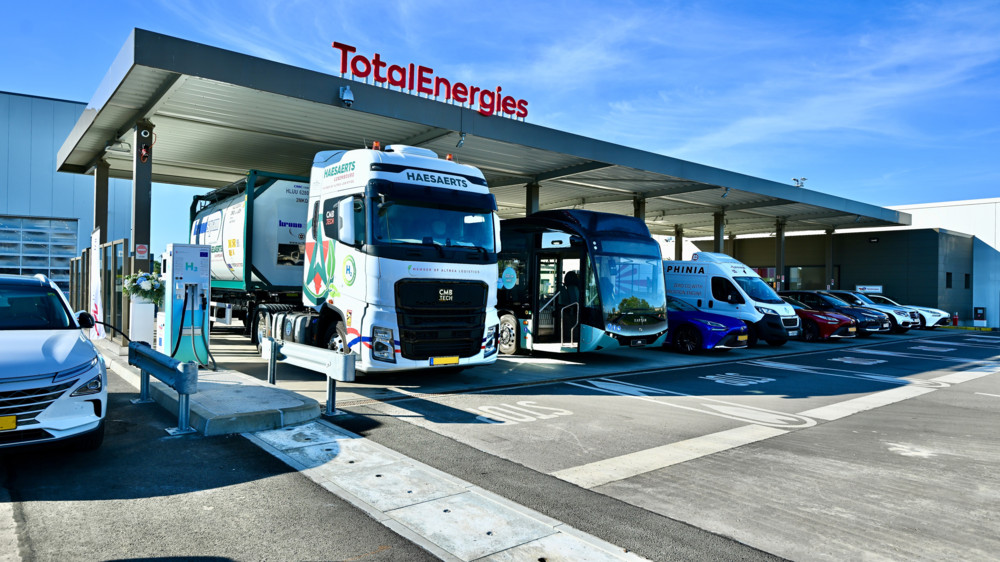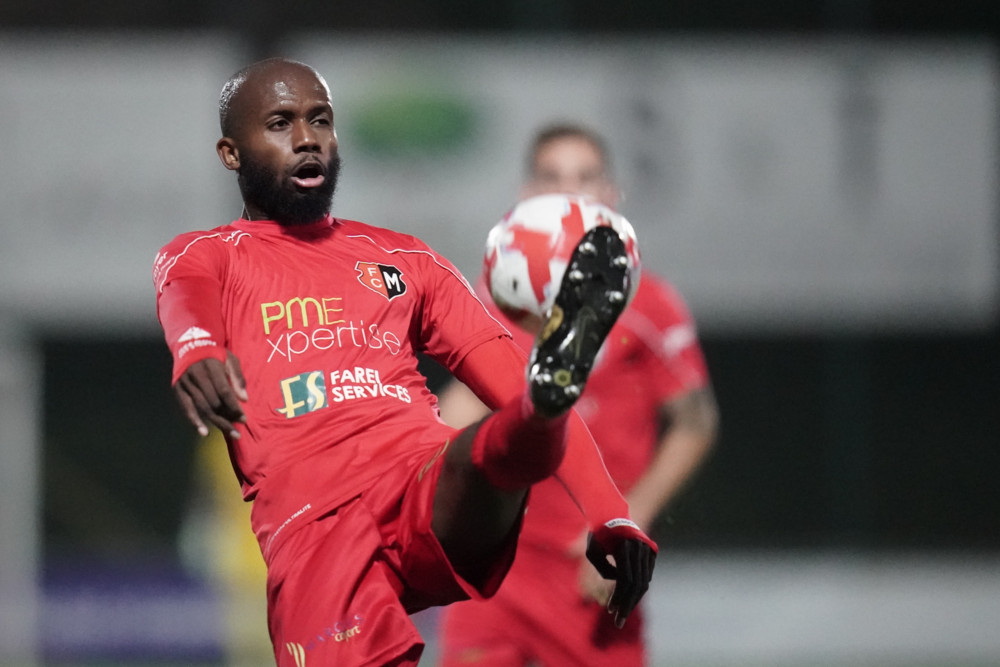Europa ist ein Friedensprojekt mit Machtfaktor. Finanzkrise, Klimaveränderung und globale Verantwortung sind drei wichtige Standbeine in der europäischen Politik. Das sagte Aussenminister Jean Asselborn vor Studenten der „London School of Economics (LSE) am Mittwochabend.
Der europäische Gedanke ist inzwischen eine Erfolgsgeschichte, mit der man globale Belange beeinflussen kann, so der Aussenminister weiter.
Dabei betonte er eine Neuauflage der transatlantischen Beziehungen mit den USA.
Asselborn sieht die EU als Brückenbilder der Nationen. Dabei ging er in seiner Rede auf den Energiestreit mit Russland ein.
Während seiner Arbeitsvisite kam der Aussenminister mit seinem britischen Amtskollegen David Miliband sowie dem britischen Justizminister Jack Straw zusammen. Themen waren bilaterale Fragen.
|
DIE REDE IM WORTLAUT Ladies and Gentlemen, It is my great pleasure to be here with you today and share my views on the role and position of the European Union in world affairs. I want to draw a picture of Europe to you, which is meant to illustrate the various ways in which Europe can provide not only opportunities, but actual solutions to today’s global challenges. I will primarily focus on three main areas where I believe Europe can and will provide concrete answers: first, the economy and Europe’s answers to the worldwide economic and financial crisis, second the environment and the challenge of climate change; and third, Europe’s role as a crucial global player, on the one hand defending the values of peace, liberty, human rights and the respect of the rule of law, and on the other stabilising conflicts and mediating between opposing parties. Much has been said about Europe’s role in international affairs. Mostly though, the European Union makes headlines which sound very much like these: a talking shop which over-regulates markets and which is, most of the time, deadlocked over odd issues such as the straightness of bananas; a quasi-supranational government stealing nations’ sovereignty, imposing laws and standardising cultural affinities; or a bureaucratic monster, consuming huge amounts of public money, not representing the will of the European people and above all is elitist and non-democratic. These are views which can often be found for example in some politicians’ language right before an election when they try to justify some of their own failures. For too long the European Union has been the scapegoat of all wrongs in Europe. Ladies and Gentlemen, Let me therefore insist, that the EU is first and foremost a peace project, designed to pacify nations which, for centuries, have fought one another. It is a project which intends to stabilise an entire continent in order to guarantee the fundamental freedoms of its people and to allow them a life in prosperity. This is precisely what is most often forgotten: European integration is a vehicle for long-lasting peace, not a mechanism to suppress Europe’s population into uniformity. Moreover, it is not a process comparable to the almighty “invisible hand”, but a process driven by the people themselves. We must remember that after the Second World War, it were the people of Europe and their visionary leaders who together decided to develop a common European future. One must never forget that the pooling of sovereignty and the breaking down of national borders and trade barriers have allowed Europe to become the world’s most powerful integrated regional economy, envied by so many. Still, many countries on the outskirts of the EU want to join. Please do not misunderstand me: I am by no means saying that the EU is nothing more than a mere common market! Thanks to the progressive deepening of European integration, the member states have been led to coordinate their positions and to consult each other on virtually every major issue, thus also cooperating politically and culturally. The people of Europe have thus succeeded in creating a network of mutual interdependence and influence. The respect of commonly agreed rules at the EU level and their primacy over national law provides for a unique form of cooperation never seen in international relations before. The European project has been such a success story that Europe now in a position to influence the world in many different ways. But let us not get stuck in history. I came here today to talk about what Europe can do in today’s world, therefore let us now look outward, as well as forward, and contemplate together what challenges and opportunities lie ahead. Financial crisis and economic downturn Ladies and Gentlemen, We are in the midst of the worst financial and economic crises of our lifetime. It is the first global crisis, as it touches at the same time countries and regions around the world as well as almost all sectors of activity. Unconditional faith in the ability of market forces to provide efficient solutions, the unwillingness of market participants to submit themselves to adequate supervision and prudential regulation and their utter inability to self-regulate their own behaviour have taken the world economy to the edge – forcing governments to take a giant leap of faith in order to prevent the looming meltdown. Although decisive action was taken by the EU in the autumn of last year, action which laid the groundwork for the G20 summit in Washington, the situation has deteriorated in many countries. The measures taken at that time have certainly contributed to stabilize the financial system for a while, but as we see now, further action is needed. The first measures taken have helped to avert a full scale collapse of the banking sector in the EU. Thanks to the timely intervention of the major central banks the functioning of the interbank market has improved, but it has not yet returned to normal lending levels. The EU, and also the other participants of the G20, should stay on course and implement the principles set out in the Washington declaration. It identifies the right priorities in the areas of supervision, prudential regulation, transparency, responsibility and integrity of all relevant actors. As we have seen in recent weeks, the banking sector is not out of the woods yet. Many EU member states, including the UK, have announced or are considering their second rescue plans, in the face of huge losses announced by their banks. In addition to the necessity of injecting further money in major banking institutions, governments have to address the question of how to handle the so-called toxic assets: should a bad bank be created? Should banks be split up or merge together? Or should they be fully nationalized? I must admit that I don’t have an answer to those questions. They have note been answered at the recent Davos Forum either. But what I would like to see is that we coordinate our actions together at the EU level. Coordination is of essence if we want to avoid gross distortions of competition in the financial sector. Furthermore a coordinated EU response and the definition of a common EU position will lend greater weight and influence to the EU at the G20 follow-up summit in London. If we want to ensure that such a crisis will not occur again in the future, we must design a new financial system based on the principles of transparency and rigorous supervision. At the end of February, a high level group chaired by Monsieur de Larosière will publish a report concerning that topic. I look forward to proposals that will efficiently enhance European supervisory arrangements. As governments undertake the national measures necessary to restore confidence and the normal functioning of the financial sector, we should not undo the principles governing the internal market. The internal market for financial services has been a key driver for growth in the recent past. We must avoid by all means a fragmentation, or re-nationalisation of it. The survival in the medium and long run of our financial institutions depends as much on those principles as on the immediate rescue packages. The proper functioning of the economy relies crucially on an effective and efficient financial system. Today we continue to hear widespread reports of businesses being denied access to credit. Meanwhile specific problems have been identified in financing large-scale infrastructure projects and for financing international trade. The failure to normalize credit flows will have serious implications for the real economy, which will need to be addressed also at EU level. In order to jumpstart the European economy which has entered into recession, the European economic recovery plan has been adopted at the December European Council. It provides a common framework for the efforts made by the member states and the EU, with a view to ensuring coherence and maximising effectiveness. The implementation of the European economic recovery plan, amounting roughly to 1.5% of EU GDP, will lead to higher deficits and public debt levels – yet there are no credible alternatives to this strategy, as sitting out the crisis is clearly not an option. As the member states implement their own recovery plans, we must by all means avoid falling into the trap of economic nationalism. The core values and framework of the EU prevent that Member states engage in mutually ruinous economic strategies. We must collectively uphold and abide by our common rules. The EU should set the example, at a time when we see a resurgence of protectionist measures around the world, which undermine the rules governing the global trading system and will only worsen the global economic situation. The appropriate lessons from this crisis must be drawn. In this context, we welcome the work by the G20 and the action plan adopted at the November 2008 summit in Washington. I support the effort of the UK to achieve significant progress towards the objectives defined in the action plan. In addition I hope that under UK stewardship the G-20 will be able to send a strong and convincing message in favour of open markets. We welcome the inclusion of key emerging economies in these discussions. A genuine reform of the international financial architecture also requires some innovative thinking in terms of the international economic governance. In this respect, the G20 is a positive first step, but it should not be seen as a permanent solution. The bold and rapid actions by EU governments have avoided an economic and financial meltdown in the short-run. However, we should not delude ourselves into thinking that the hardest part of the work has been done. The Environment, Climate Change and Energy policy Despite the current economic and financial turmoil, we must actively and tirelessly continue to address another global challenge: climate change. Europe has lived up to its responsibility and has taken over the global lead in the battle against global warming. The EU has set very ambitious goals for itself: we are aiming to reduce carbon emissions by 20%, to increase the use of renewable energy to 20%, and to increase energy efficiency by 20%. All these legally-binding targets must be met by 2020. With its concrete and ambitious goals, the EU – speaking with one voice – will continue to provide leadership on an international level in order to achieve an agreement at the Copenhagen Climate Conference in December 2009. We will work actively with all our partners to this end. The EU is furthermore committed to increasing carbon emissions reductions to 30% within the framework of an ambitious and comprehensive global agreement on climate change provided that our partners will undertake comparable commitments. In this context, I was very glad and encouraged to hear President Obama, in his inaugural address, calling for a “new era of responsibility”. For too long, the US has been dragging its feet in this crucial area. Today, the US and other major actors must assume their responsibility. Together we must join efforts to continue to reduce greenhouse gas emissions, to improve energy efficiency and to reduce dependence on fossil fuels. This will be of crucial importance for the protection of our environment in which future generations will live. Renewing Transatlantic Relations It will have become clear by now that tackling these challenges requires a revitalised transatlantic partnership. The first days of the new US administration have shown that there is a window of opportunity unparalleled in the last decade. The EU must therefore seize the moment and make every effort in order to renew the transatlantic ties which have suffered under the last US administration. All of Europe’s leaders, and I’m sure many among you too, have welcomed Barack Obama on the international stage and have put a lot of hope in him. Yet he cannot and will not be able to fulfil everyone’s dreams by himself. Therefore the EU must come forward and support the new President in his numerous endeavours. In past decades, when Europe and America stood side by side, the results have always been progress, stability and prosperity… which is precisely what is needed in a time of turmoil in the world’s economy. Surely, the US and the EU will keep their different opinions, views and approaches on certain issues, yet the past 8 years have illustrated that greater goals and global challenges can only adequately be faced if the EU and the US cooperate. Ladies and Gentlemen, Perhaps another chance for the US and Europe to renew their relations is President Obama’s decision to close the Guantánamo Bay Detention Camp on Cuba. Although the responsibility of resolving the Guantánamo issue clearly lies in the hands of the US administration, the decision to close the camp has been welcomed by all EU member states.. Moreover, by deciding it would give a united European response on the Guantánamo issue, the EU has secured a very important achievement. It has prevented the divisions and fragmentation that have so often be set its transatlantic policy in the past and has thereby strengthened its position as a global player. By sending these signals to one another, the EU and the US can begin to converge again and forget the days when Defence Secretary Donald Rumsfeld labelled some of the EU member states as representing “old Europe”, effectively splitting the EU. It is only by being united that the EU can pull its weight in international affairs and be a useful and reliable partner for the US. As the more enlightened US administrations have found, EU unity benefits both sides of the Atlantic whereas European divisions ultimately weaken both sides. “Divide and rule” policies, as we have seen not so long ago, are thus ultimately self-defeating. Speaking of European unity and “divide and rule”, another strategic partner that has more than its fair share of experience in this field is Russia. Gas Crisis and EU-Russia Relations The gas conflict between the Russian Federation and Ukraine has illustrated for the third time in a row how vulnerable Europe remains, as well as how heavily it depends on Russian gas. However, from a political point of view, the EU managed to defuse the crisis, as the Czech Presidency brought both parties to the negotiating table, successfully brokering a compromise. Suspicion towards Russia remains strong in Europe. It was at its height when the frozen conflict in South Ossetia escalated in an open conflict in August 2008, as Russia struck massively back at Georgian aggression. However, the Europeans stood united behind the French Presidency and by refusing to play the “blame game”, by giving priority to establishing a ceasefire and by speedily bringing humanitarian aid on the ground, managed to play an important role at the very right moment. As the US and Russia were unable to speak to each other at a high level, the EU succeeded in coming in as a credible actor, as a legitimate alternative to the US as a bridge-builder, an actor capable of stepping in and separating warring parties, effectively stopping conflict. This is an enormously positive evolution and it is exactly in this area of peace-making where the EU must play its role and develop greater capacity. Despite the positive results achieved in both the Georgia and the gas crisis, the EU-Russia relations remain strained. Negotiations of a new Partnership and Cooperation Agreement are still in a slower motion since the Georgia conflict, and many efforts will be required in order to establish a proper mutual understanding and healthy cooperation between two global players which are heavily interdependent. I can assure you, that the EU will work hard towards this goal. One cannot overestimate the importance of achieving a lasting improvement in our relations with Russia, with whom, after all, geography forces us to share a continent. This is obviously easier to do when the overall context is favourable. By this, I mean in particular the US-Russia relationship, which seems to be improving again, as demonstrated by the recent Russian decision not to deploy missiles in Kaliningrad. Such an improvement would also enable a convergence of views on the critical and difficult process of NATO enlargement. Ladies and gentlemen, Let me give you one final – highly topical – example of the EU’s role in international affairs by analysing the situation in the Middle East and in Iran. I hope you will forgive me for going into some detail on this matter. As you know, the EU’s commitment to the region is a longstanding one: it participates in the Quartet, alongside the UN, the US and Russia, it has a border assistance mission in Rafah (EUBAM) as well as a police mission in the West Bank (EUPOL COPPS). It is by far the greatest aid donor to the region. The EU’s commitment is also apparent in the strenuous efforts it is making to tackle the present crisis. The EU’s council of foreign ministers has met both sides and has lent its full support to Egypt’s mediation efforts. Israel has made it clear that it intends to continue its policy of isolating Gaza, on the argument that any loosening would be used by Hamas to claim victory. On the other hand, moderate Palestinians as well as Arab leaders point out that the isolation of Gaza and the utter misery and despair it means for the population in fact strengthens Hamas by sidelining any moderate voices. The fact that Hamas is a terrorist organisation is beyond dispute. But the solution will not be found in any policy that leaves the territory in its present state of economic and psychological distress, any policy that implies the total absence of any perspective, any hope for its population. Such policies will not guarantee the security of Israel either. In fact they will do just the opposite. What must happen now is the massive supply of humanitarian aid, followed by reconstruction. This presupposes the opening of border crossings, in particular – but not only – Rafah, where the EU mission will play a critical role. For all this to happen however, one crucial condition must be met: the implacable divisions inside the Palestinian camp must be overcome so that a reconciliation government, accepted by all sides, can be put in place. If the Palestinians succeed in setting up such a government, the international community, be it the EU, the US or Arab countries, will have to extend it support and recognition. The EU can contribute to such an outcome by putting pressure on both sides in order to support moderates, in cooperation with the US and its renewed commitment to the region. The situation in Iran is strongly linked to the crisis in the Middle East. You are all aware that the EU has devoted huge efforts to address the issue of Iran’s nuclear ambitions. It has done so the EU way, through negotiations and multilateral organisations such as the IAEA, even if the procedures followed have been somewhat unorthodox. The EU has managed to keep the international community united behind a double track approach; a major achievement and the only way forward in my opinion. The willingness signalled by the new US Administration to engage with Iran is of utmost importance in this respect. I strongly hope that the Iranian authorities will seize upon this opportunity and that confidence can start to be rebuilt. Institutional Reform and the Lisbon Treaty Ladies and Gentleman, I hope to have convinced you that the EU is now much more than just a bystander in international affairs, and that it has joined the ranks of established players in a world that is still looking for a new order. If the EU is to maintain and strengthen its role on the international scene and to tackle more effectively current and future challenges, it is necessary to reinforce its basis. Its institutions must be reformed and its common policies must be expanded and deepened. The Lisbon Treaty is the means to this end. The creation of the position of High Representative of the EU for foreign and security policy will lead to greater consistency to the Union’s external action. This will increase the visibility of the EU worldwide. The Treaty strengthens the European security and defence policy. It also provides the basis for a common energy policy and lays down the principle of solidarity. It is ever more pressing that the Lisbon Treaty enters into force as soon as possible. As regards the situation in Ireland, there seems to be a positive momentum according to the latest polls. I hope that the concessions made by the EU partners at the December European Council will help Ireland to overcome its concerns and enable a positive outcome of a second referendum. I also hope that ratification will be completed quickly in all other EU Member States who haven’t yet concluded the ratification process. We regret all further delays in the ratification process. Even more worrying are in my view the attempts of some capitals to sabotage the democratic process of ratification, by making their own ratification dependent on the Irish decision. The deadlock over the Lisbon Treaty must end quickly. Hopefully, the EU will be soon in a position where it can concentrate in an even more effective manner on its role on the international stage, and be better equipped to face new challenges ahead. I thank you very much for your kind attention and look forward to answering your questions. |








Sie müssen angemeldet sein um kommentieren zu können